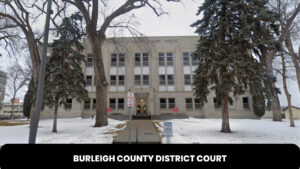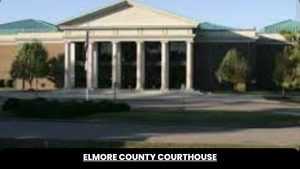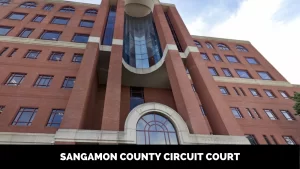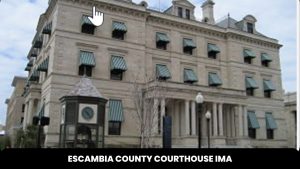Southern District of Illinois: A Vital Part of the Federal Court System
Introduction
The Southern District of Illinois is a federal judicial district that covers the southern third of the state of Illinois. It is part of the United States District Court system, which is responsible for handling federal cases at the trial level. The Southern District plays a vital role in the administration of justice in its region.
History of the Southern District of Illinois
Establishment and Early Years
The Southern District of Illinois was officially established on February 13, 1855 by Congress. This was part of a broader reorganization of the federal court system as the country continued expanding westward.
Prior to the district’s creation, the entire state was part of the District of Illinois, which was established in 1818 when Illinois first became a state. However, as the population grew and spread south, the need for a separate judicial district in the southern part of the state became evident.
The act of Congress establishing the Southern District named three initial points for holding court: Shawneetown, Springfield, and Danville. The first judge appointed was Samuel H. Treat, who would go on to have a long and distinguished career on the federal bench.
Expansion and Changes
Over the years, the Southern District of Illinois has been reshaped as population centers shifted and docket demands changed. Here are some key developments:
- 1905 – The District lost several eastern counties to the new Central District of Illinois, including Danville. This left the Southern District focused on the state’s southwestern region.
- 1928 – Counties near St. Louis were transferred to the Eastern District of Missouri. This included Monroe, Randolph, Perry, and Jackson counties in Illinois.
- 1978 – The District was realigned again, regaining many of the counties lost in 1905 plus some additional ones. This established the current boundaries.
- 2007 – The District dropped Springfield and added East St. Louis as a place for holding court due to increased caseloads in southwestern Illinois.
Notable Cases
The Southern District has handled many high-profile cases over the decades, including:
- United States v. Petrillo (1947): An important early case on First Amendment rights related to free speech and labor disputes.
- Heart of Atlanta Motel v. United States (1964): A key civil rights case related to desegregation that went to the Supreme Court.
- United States v. Microsoft Corp. (1998): The major antitrust lawsuit against Microsoft, which included complaints filed in the Southern District of Illinois.
- FTC v. Cephalon, Inc. (2015): A case regarding pharmaceutical companies accused of anti-competitive pay-for-delay deals.
Jurisdiction and Territory
The Southern District of Illinois holds jurisdiction over all federal cases, both criminal and civil, arising in its designated region. This includes a significant portion of southern Illinois.
Counties
The District is made up of 45 counties covering roughly the southern third of Illinois. The counties are:
Alexander, Bond, Calhoun, Clark, Clay, Clinton, Crawford, Cumberland, Edwards, Effingham, Fayette, Franklin, Gallatin, Hamilton, Hardin, Jackson, Jasper, Jefferson, Jersey, Johnson, Lawrence, Madison, Marion, Massac, Monroe, Perry, Pope, Pulaski, Randolph, Richland, St. Clair, Saline, Union, Wabash, Washington, Wayne, White, Williamson
Court Locations
The Southern District of Illinois holds court in four locations:
- East St. Louis – The Melvin Price Federal Building & Courthouse here is the District’s main courthouse.
- Alton – A satellite courthouse is located in the Alton Federal Building.
- Benton – A part-time courthouse operates out of the Benton Federal Building.
- Cairo – Another part-time branch is located in the Cairo Custom House and Post Office.
Operations and Administration
The Southern District of Illinois is part of the federal judiciary, under the supervision of the 7th Circuit Court of Appeals and ultimately the U.S. Supreme Court. Day-to-day operations are handled by court staff, marshals, judges, and attorneys.
U.S. Marshal
The chief law enforcement officer for the District is the United States Marshal. The current Marshal is David C. Davis. The Marshal oversees security for the court facilities and personnel.
Judges
The Southern District has a total of 4 district judges who preside over cases and hearings:
- Chief Judge Nancy J. Rosenstengel
- Judge J. Phil Gilbert
- Judge Stephen C. Williams
- Judge Staci M. Yandle
There are also several magistrate judges who handle preliminary case matters.
U.S. Attorney
The chief prosecutor representing the U.S. government in criminal cases is the United States Attorney. The Southern District’s current U.S. Attorney is Steven D. Weinhoeft.
Court Staff
Additional staff including clerks, administrators, probation officers, and court reporters assist in the day-to-day functions of the court system.
Facilities
The Southern District utilizes several buildings for its courthouses, offices, and operations.
Courthouses
As noted previously, the Southern District holds court in four locations:
- The Melvin Price Federal Building and Courthouse in East St. Louis is the main facility and houses the District Court Clerk’s office.
- The Alton Federal Building and Courthouse provides additional courtrooms and office space.
- Benton and Cairo have small courthouses for part-time proceedings.
Office Locations
- In addition to courthouses, the District maintains other offices:
- The District Court Probation Office is located in Benton.
- The U.S. Attorney’s Office and U.S. Marshals Service have offices in East St. Louis, Benton, and Cairo.
Practical Information
For those doing business with or appearing before the Southern District, here are some useful details:
Contact Information
- Main Phone Number: (618) 482-9336
- District Court Clerk’s Office: (618) 482-9106
- U.S. Attorney’s Office: (618) 628-3700
- U.S. Marshals Service: (618) 482-9320
Online Resources
- Main Website: https://www.ilsd.uscourts.gov
- PACER site for records: https://ecf.ilsd.uscourts.gov
- Jury Info: https://www.ilsd.uscourts.gov/jury
- District Court Rules: https://www.ilsd.uscourts.gov/rules-procedures
Conclusion
In conclusion, the Southern District of Illinois plays an indispensable role in the federal judicial system in its region. For over 150 years, the District has carried out its mission of administering justice through fair and efficient resolution of federal cases and controversies. With its rich history and continuing evolution, the Southern District will remain a vital forum for upholding the rule of law in southernmost Illinois. As the needs of the public change, the District will adapt to meet those needs while staying true to its Constitutional purpose.
Importance of the District
From landmark civil rights cases to major white collar prosecutions, the Southern District has shaped the legal landscape locally and beyond. While less prominent than larger districts, its impact should not be underestimated. For residents and businesses in southern Illinois, the District provides accessible federal justice in their backyard.
Future of the District
While broad trends like the increased use of technology will affect the District Court, the core mission will remain providing fair, impartial rulings on the cases before it. Judges, staff, and other personnel will continue working diligently to provide the best possible public service for all those who interact with the Southern District of Illinois.
Frequently Asked Questions
What are the boundaries of the Southern District of Illinois?
The District covers 45 counties in the southern third of the state, including major cities like Belleville, East St. Louis, and Carbondale.
Where are the courthouses located?
The main courthouse is in East St. Louis. Additional facilities are located in Alton, Benton, and Cairo.
How many judges serve on the District Court?
There are currently 4 district judges and several magistrate judges serving the Southern District.
Who oversees the U.S. Attorney’s Office?
The current U.S. Attorney is Steven D. Weinhoeft, who leads federal prosecutions in the District.
What is the role of the U.S. Marshal Service?
The Marshal Service handles court security and prisoner transport, and also serves warrants and subpoenas.






